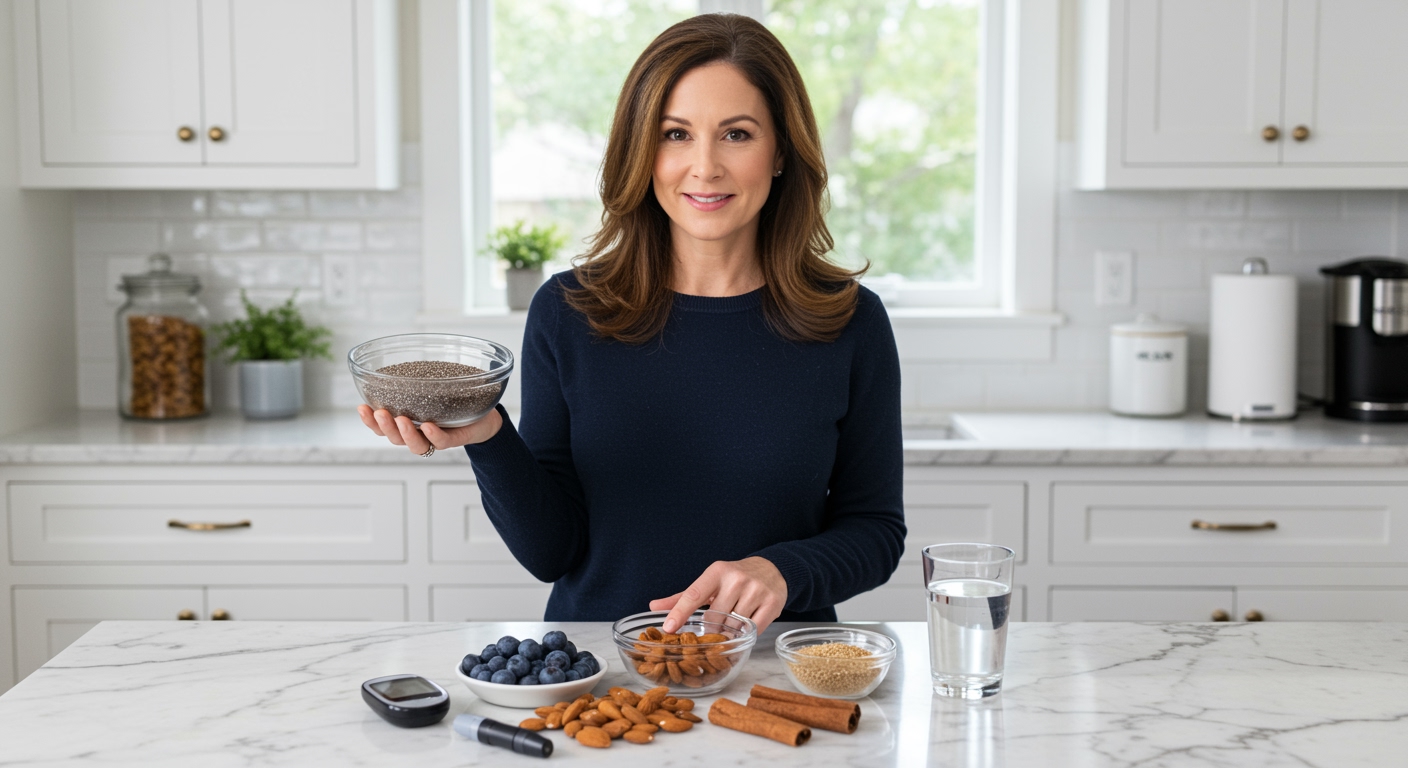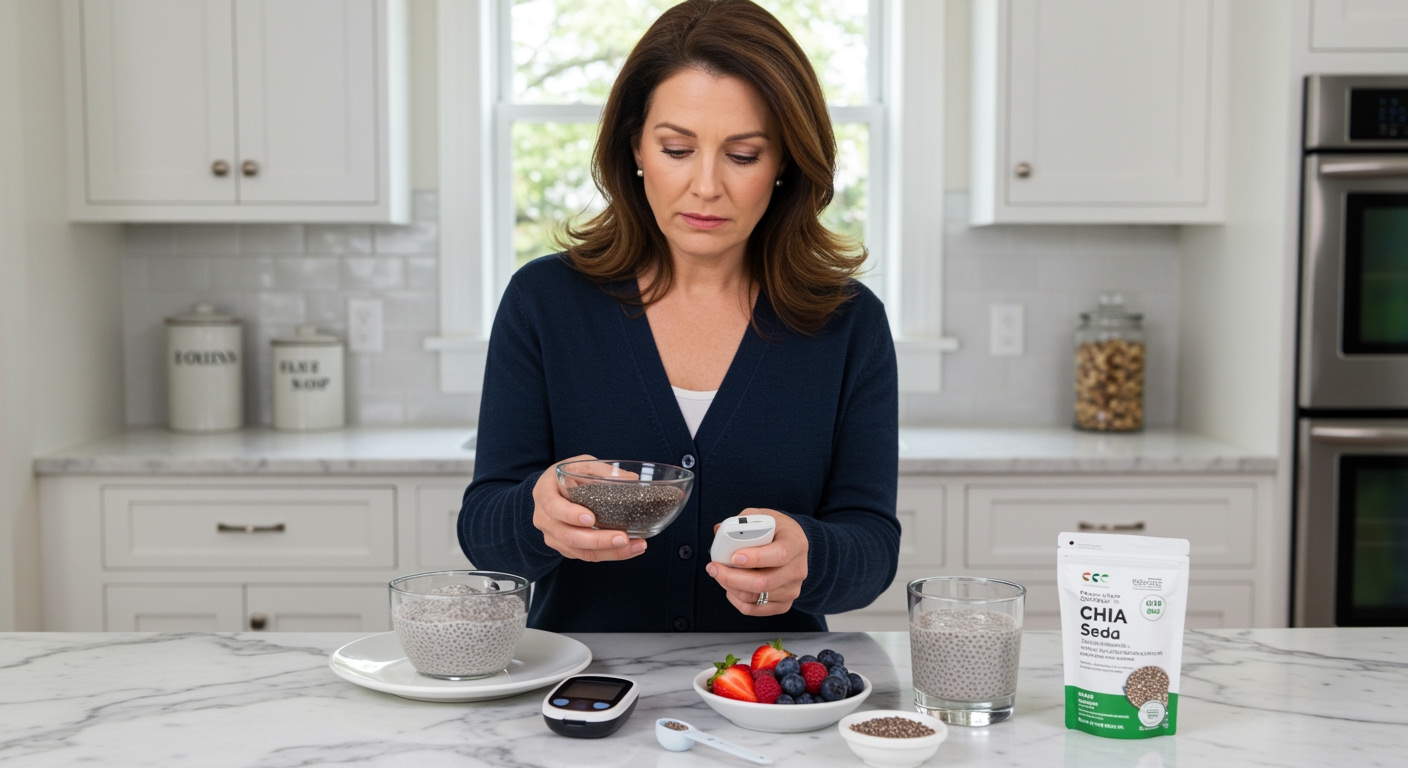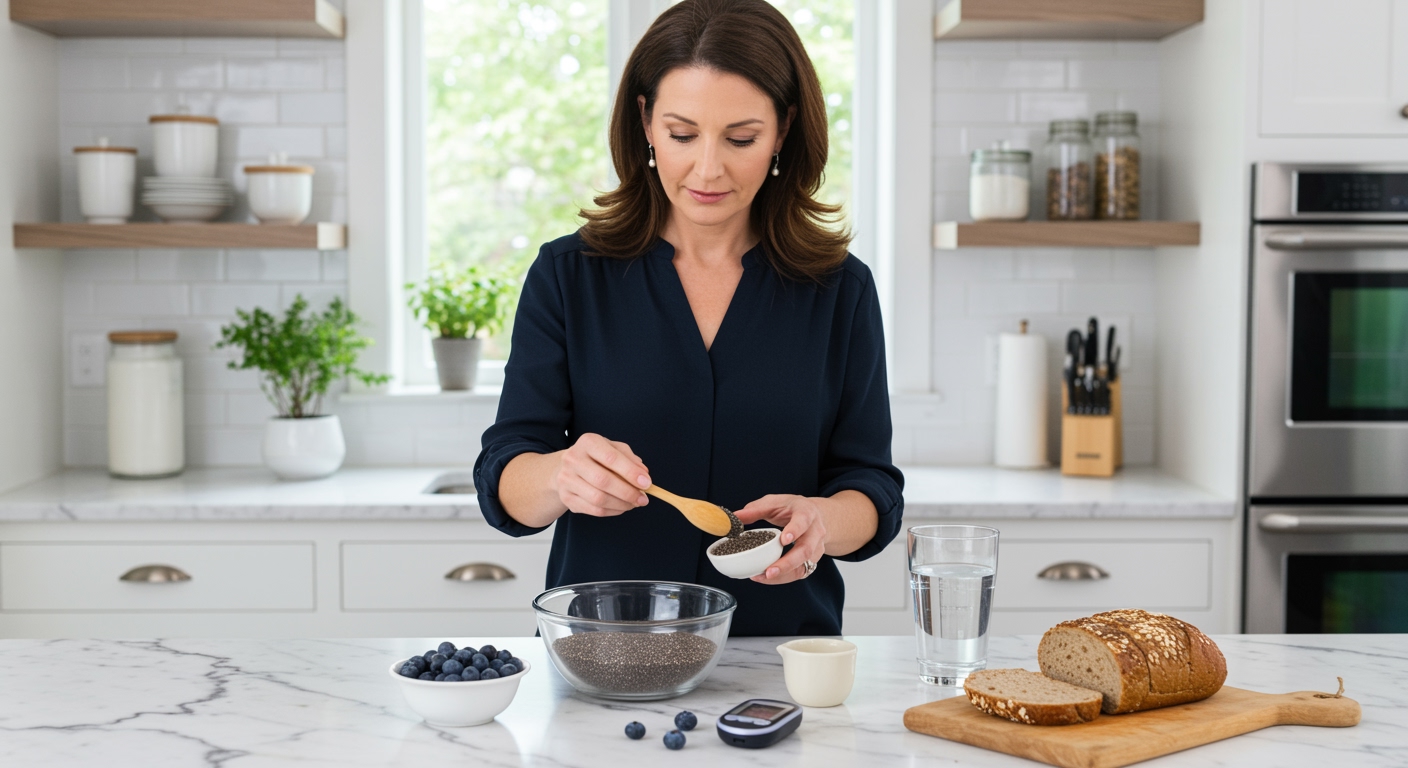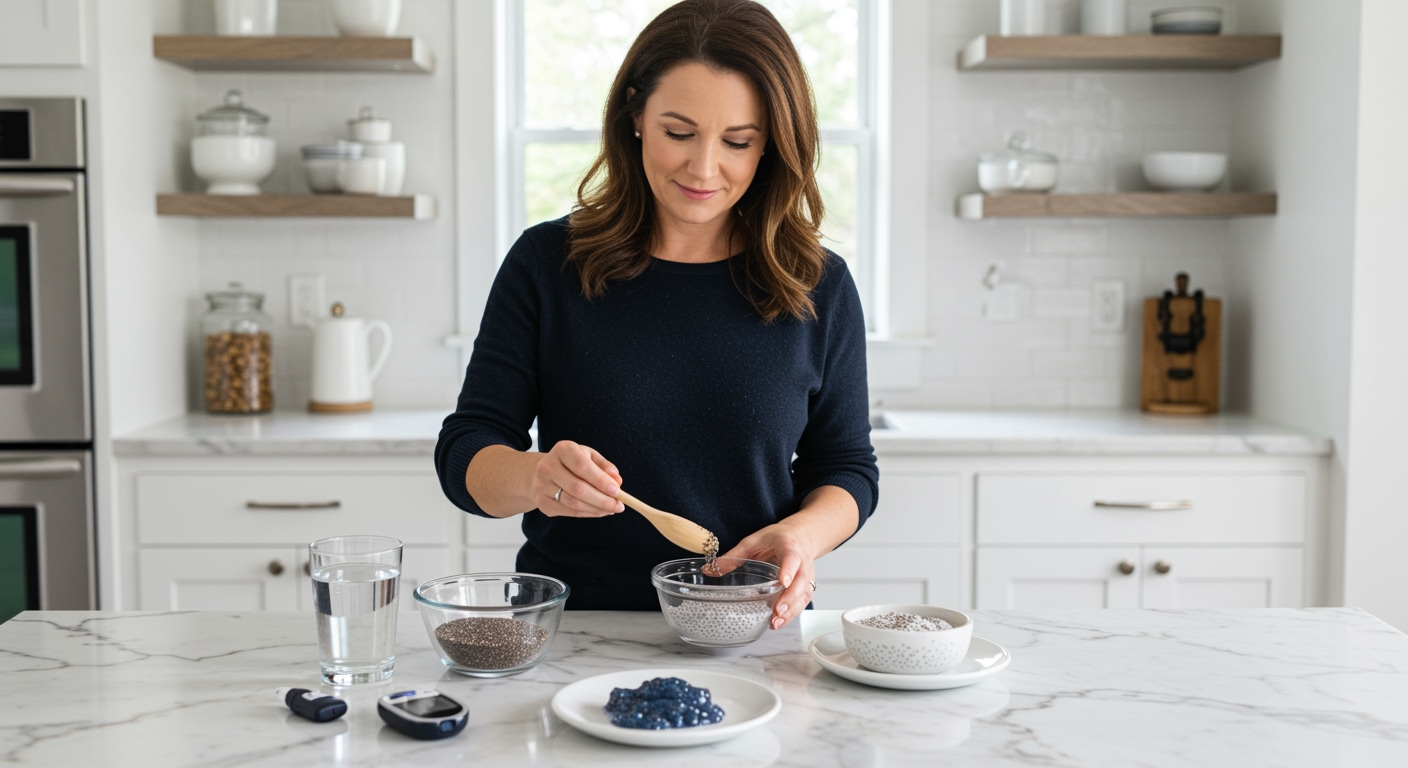✪ Key Takeaway: Chia seeds are excellent for diabetes as they slow sugar absorption and improve insulin sensitivity.
Introduction
Your doctor hands you a list of foods to avoid, but never mentions the tiny seeds that could transform your blood sugar control.
You might be wondering about chia seeds because you heard they help with diabetes, or maybe someone told you they are too high in calories for blood sugar management.
Hi, I am Abdur, your nutrition coach and today I am going to explain exactly how chia seeds affect your blood sugar and why they might be the missing piece in your diabetes management puzzle.
How Do Chia Seeds Affect Blood Sugar Levels?
Chia seeds create a gel-like barrier in your stomach that slows down sugar absorption into your bloodstream.
When you eat chia seeds, they absorb water and expand up to 12 times their original size.
This expansion creates a protective coating around other foods in your stomach, preventing rapid sugar spikes that damage your blood vessels.
Research shows that people with diabetes who ate chia seeds experienced a 39% reduction in blood sugar levels after meals compared to those who did not eat them.
The soluble fiber in chia seeds also feeds beneficial gut bacteria that produce compounds helping your cells respond better to insulin.
Think of chia seeds as tiny sponges that soak up excess sugar and release it slowly, giving your pancreas time to produce adequate insulin without overwhelming your system.
✪ Pro Tip: Soak chia seeds for 15 minutes before eating to maximize their blood sugar stabilizing effects.
What Makes Chia Seeds Different From Other Seeds?
Chia seeds contain the highest concentration of omega-3 fatty acids among all plant foods, which directly reduces inflammation in your blood vessels.
Unlike flax seeds that need grinding for absorption, chia seeds deliver their nutrients in their whole form, making them more convenient for daily use.
Each tablespoon of chia seeds provides 5 grams of fiber, which is more than most people get from an entire day of eating processed foods.
The protein content in chia seeds helps slow digestion even further, creating a sustained release of energy that prevents the afternoon blood sugar crashes many diabetics experience.
Chia seeds also contain magnesium and chromium, two minerals that improve insulin sensitivity and help your cells use glucose more efficiently.
While sunflower seeds and pumpkin seeds offer some benefits, they lack the unique gel-forming properties that make chia seeds particularly effective for blood sugar control.
✪ Fact: Chia seeds contain 8 times more omega-3s than salmon by weight.
How Much Chia Seeds Should Diabetics Eat Daily?
The optimal amount for blood sugar control is 1-2 tablespoons of chia seeds per day, which provides about 60-120 calories.
Start with 1 teaspoon daily for the first week to allow your digestive system to adjust to the increased fiber intake.
Eating more than 2 tablespoons can cause digestive discomfort and may interfere with medication absorption if taken at the same time.
The best time to consume chia seeds is 30 minutes before meals, allowing them to expand in your stomach and create the protective barrier that slows sugar absorption.
You can also add them to your morning smoothie or yogurt, where they will continue working throughout your meal to stabilize blood sugar levels.
Remember that consistency matters more than quantity – eating 1 tablespoon daily for months produces better results than eating large amounts sporadically.
✪ Note: Always drink extra water when consuming chia seeds to prevent digestive issues.
Can Chia Seeds Replace Diabetes Medications?
Chia seeds are a powerful supplement to your diabetes management plan, but they should never replace prescribed medications without medical supervision.
Many people experience significant improvements in their blood sugar control when combining chia seeds with their existing treatment plan.
Some individuals have been able to reduce their medication dosages under doctor supervision after consistently using chia seeds for several months.
The key is working with your healthcare provider to monitor your blood sugar levels closely as you incorporate chia seeds into your daily routine.
Chia seeds work best when combined with other lifestyle changes like regular exercise, stress management, and a balanced diet rich in whole foods.
Think of chia seeds as one tool in your diabetes management toolbox – effective and valuable, but most powerful when used alongside other proven strategies.
✪ Pro Tip: Track your blood sugar readings for two weeks after adding chia seeds to see their impact.
Are There Any Side Effects For Diabetics?
Most diabetics tolerate chia seeds well, but some may experience digestive changes during the first week as their gut bacteria adjust to increased fiber.
The most common side effects include mild bloating, gas, or changes in bowel movements, which typically resolve within 7-10 days.
People taking blood thinning medications should consult their doctor before adding chia seeds because the omega-3 fatty acids can enhance the effects of these drugs.
Chia seeds may also lower blood pressure slightly, which is generally beneficial for diabetics but requires monitoring if you already take blood pressure medications.
Some individuals with severe digestive conditions like Crohn disease or diverticulitis should avoid chia seeds during flare-ups.
The benefits far outweigh the risks for most people, but starting slowly and paying attention to your body response ensures the safest experience.
The Bottom Line
Chia seeds are one of the most effective natural tools for managing blood sugar levels in people with diabetes.
Small seeds create big changes when you use them consistently and correctly.
I would love to hear about your experience with chia seeds or answer any questions you might have about incorporating them into your diabetes management plan – please share your thoughts in the comments below.
References
At NutritionCrown, we use quality and credible sources to ensure our content is accurate and trustworthy. Below are the sources referenced in creating this article:
- PubMed: Chia Seeds and Diabetes Research
- University of Toronto: Chia Seeds Promote Weight Loss in People with Diabetes
- PubMed: Effects of Chia Seeds on Metabolic Parameters
- Klinio: Chia Seeds and Diabetes Management





